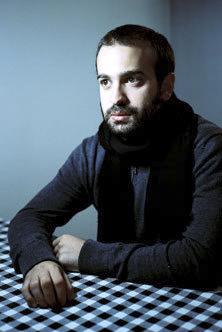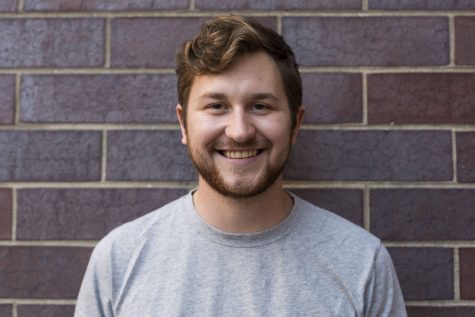Campos’ Third Film Explores Nuance of Mental Health

Tisch alumni Antonio Campos sat down with WSN to discuss his ventures in founding Borderline Films and his recent work with “Christine,” his third feature film.
October 11, 2016
Since filmmaker and Tisch alumni Antonio Campos founded Borderline Films with Josh Mond and Sean Durkin during their time at NYU, the three have taken turns directing and producing each other’s films as the company steadily expands. “Christine,” Campos’ third feature film, tells the true story of Christine Chubbuck (Rebecca Hall), a TV news reporter who committed suicide on camera during a live broadcast in 1974. WSN sat down with Campos to discuss the strategies for approaching this story and the future plans for Borderline Films. (This interview has been edited for length and clarity.)
WSN: How did you get involved in this project and why did you want to tell Christine Chubbuck’s story?
Antonio Campos: Craig Shilowich [the screenwriter] and I went to NYU together but we weren’t particularly close; we had a lot of mutual friends. One of them was a guy named Micah Bloomberg, who I’ve worked with a bunch, and he wrote to me and said “I think you would really respond to Craig’s script about Christine Chubbuck.” Craig and I have similar sensibilities. We see where the dark humor in this story and I read the script and I really loved it. The main thing I responded to was her psychology. We spent time together developing the script further. But really Craig did a beautiful job at exploring her mind and her daily struggle and not making the movie about her committing suicide but more about who she was and how she tried to live and ultimately getting to the place that she does. I ultimately saw this great deal of compassion and humanity in the script. For me there’s no cynicism in this script.
WSN: One thing I really admired about the film was that there wasn’t an attempt to diagnose her or identify a specific event that led to her suicide. Could you talk about that choice?
AC: No one, not even the people closest to her, could tell you exactly what happened day to day, because none of us were in her mind. But we can kind of extrapolate from what we do know and the way that she did behave what she was feeling at different points. And the one thing we do know is that at the end of her life, when they were talking to people around the time of the funeral in ‘74, even her mother said, “I don’t know how else my daughter’s life would have ended…” That’s a paraphrase, but that was the idea of it… that was key, was that people didn’t really understand the reason why she did what she did. This is what a minister said at her memorial: “We suffer at our sense of loss, we are frightened by her rage, we are guilty in the face of her rejection, we are hurt by her choice of isolation, and we are confused by her message…” It was key to remember that whenever we were sort of putting the pieces together leading up to her suicide, that if you went back and tried to pinpoint one thing,
you couldn’t.
WSN: Last fall WSN interviewed Josh Mond, one of your co-founders at Borderline Films. He talked to us about the creation of Borderline while you were at NYU. What are the advantages and disadvantages of having your own company?
AC: The advantage of having our own company was that we set up a dynamic in which we would always be busy, always working and would always have the support of at least two people. Also, we didn’t know out of film school what exactly a producer did. In our minds, a producer was just somebody who helped the director get what they wanted. The reality of what a producer does is a lot more nuanced and complicated. The reason why our company worked the way it did and the reason it worked out was because we were becoming friends as we became business partners. We developed a dynamic in which we were brutally honest with one another.
WSN: When WSN spoke to Mond last fall, he said that Borderline was going to begin supporting first-time filmmakers. This year at Sundance, the first of those films “The Eyes of My Mother” premiered. How did that project come about?
AC: Nic [Pesce] was a really talented young filmmaker who had been assisting Josh in the edit of James White. Josh encouraged him to make a short film and write a script and he would help, and he did. Consistently, when someone has worked for us and been supportive and kind and talented, we always make an effort to give back and encourage them to do the work. Nic followed through, made a great short film with no money and then wrote a script that was really good. He listened to Josh and started putting his team together. We helped wrap up the team he was working with and oversee the production, creatively involved all the way through. And it paid off with a film that we all are really proud of and a film that people really responded to.
A version of this article appeared in the Tuesday, Oct. 11 print edition. Email Zach Martin at [email protected].















































































































































